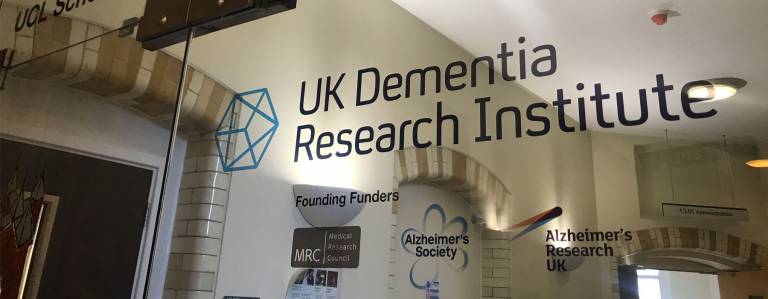UK DRI at UCL Guest Seminar: Evandro Fei Fang
22 March 2024, 2:00 pm–3:00 pm

This event is free.
Event Information
Open to
- UCL staff | UCL students
Cost
- Free
Organiser
-
Samantha Henry
Location
-
This seminar is taking place on Zoom.Please contact Samanthafor the zoom linkdetails.
The all ‘A’s: ageing, Alzheimer’s disease, autophagy, AI, and an ‘A’ compound in brain health and longevity
Increased lifespan enables people to live longer, but not necessarily healthier lives1-3. Ageing is arguably the highest risk factor for numerous human diseases, including Alzheimer’s disease (AD); thus understanding the molecular mechanisms of human aging holds the promise of developing interventional and therapeutic strategies for many diseases simultaneously, promoting healthy longevity. Accumulation of damaged mitochondria is a hallmark of aging and age-related AD. However, the molecular mechanisms of impaired mitochondrial homeostasis and their relationship to AD are still elusive. Mitochondrial autophagy (mitophagy) is the cellular self-clearing process that removes damaged and superfluous mitochondria, and therefore plays a fundamental role in maintaining neuronal homeostasis and survival1, 4, 5. We hypothesise that age-susceptible defective mitophagy causes accumulation of damaged mitochondria, first in the high energy-demanding and ‘fragile’ entorhinal cortex Layer II region, leading to inflammation, senescence, and finally cellular dysfunction and/or death; this age-related risk combines with genetic and environmental risks causing AD and its progression6. Restoration of mitophagy/autophagy, through pharmaceutical (e.g., NAD+, passion fruit components, and urolithin A) and genetic approaches, forestalls pathology and cognitive decline in mouse models of AD and improves neuronal function in AD iPSC-derived neurons7-9. Additionally, artificial intelligence (AI) is now being used to propel drug screening, as well as being used for drug design specifically targeting AD and ageing pathways10. The Evandro Fang lab is now leading/involved in several clinical trials looking into the use of NAD+ precursors to treat AD and premature ageing diseases, among others.
About the Speaker
Evandro Fei Fang
Evandro F. Fang is an Associate Professor of Molecular Gerontology at the University of Oslo (UiO) and the Akershus University Hospital, Norway, and his group are working on the molecular mechanisms of human ageing and age-predisposed neurodegeneration (https://evandrofanglab.com/). More specifically, the Fang laboratory is focusing on the molecular mechanisms behind how cells clear their damaged and aged mitochondria, a process termed “mitophagy”, as well as the roles of the NAD+-mitophagy/autophagy axis in healthy ageing and AD inhibition. NAD+ is a fundamental molecule in life and health and decreases in ageing and AD. Dr Fang is fascinated with and actively engaged in moving his laboratory findings to translational applications and is involved in 5 NAD+-based clinical trials, with the overarching goal of establishing novel and safe biological approaches to promote longer and healthier human lives.
 Close
Close

